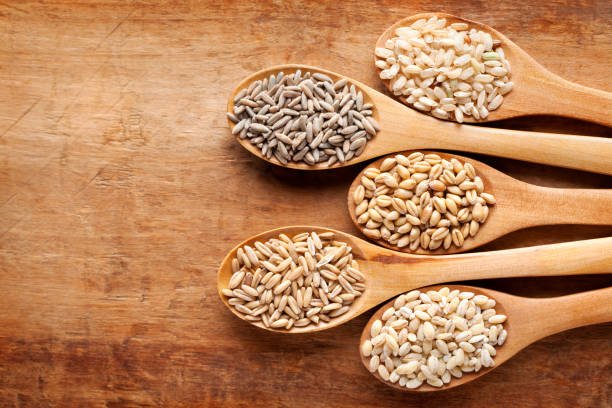Maintaining a healthy diet is essential for overall well-being, as it provides our bodies with the necessary nutrients to function optimally.
By exploring the healthiest food options and incorporating a diverse range of nutritious items into our meals, we can better support energy levels, immunity, and long-term health.
In this blog post, we’ll reveal 6 powerful tips for exploring the healthiest food to transform your diet—covering a variety of food categories that offer essential nutrients and health benefits. These practical insights will empower you to make informed, sustainable choices for a more balanced and vibrant lifestyle.
Fruits and Vegetables:
Fruits and vegetables are foundational components of a healthy diet, offering a plethora of vitamins, minerals, fiber, and antioxidants that are crucial for overall well-being. Incorporating a diverse range of colorful fruits and vegetables into your meals ensures you receive a wide variety of essential nutrients.
Leafy greens such as spinach and kale, along with vibrant berries, citrus fruits bursting with flavor, crunchy carrots, and colorful bell peppers are just a few examples of the nutritious bounty nature provides.
As part of these 6 powerful tips for exploring the healthiest food to transform your diet, embracing the rainbow of fruits and vegetables available is a key step. By doing so, you can nourish your body with the vital nutrients it needs to thrive and support lasting health.

Whole Grains:
Whole grains are an essential component of a healthy diet due to their numerous benefits. Unlike refined grains, which are stripped of many nutrients during processing, whole grains retain their fiber, vitamins, and minerals. This makes them excellent for promoting digestive health and maintaining steady energy levels throughout the day.
Options like brown rice, quinoa, oats, whole wheat bread, and barley are excellent choices when opting for whole grains. As part of these 6 powerful tips for exploring the healthiest food to transform your diet, incorporating whole grains is a smart way to fuel your body with sustained energy and long-lasting fullness.
These foods provide complex carbohydrates and fiber that support digestion and help keep you feeling satisfied. Experimenting with different grains adds diversity to your meals while delivering essential nutrients needed for overall health and well-being.

Lean Protein Sources:
Protein is crucial for repairing and building muscles, as well as maintaining a robust immune system. Lean protein sources like poultry, fish, tofu, legumes, nuts, and seeds are recommended for their nutritional benefits.
As highlighted in the 6 powerful tips for exploring the healthiest food to transform your diet, incorporating a variety of protein sources is essential to ensure you obtain all the necessary amino acids for overall health.
This diverse intake not only supports muscle growth and repair but also strengthens your immune system, helping your body fight off illnesses and infections effectively.
Dairy and Dairy Alternatives:
Dairy products and their alternatives are valuable sources of essential nutrients crucial for maintaining strong bones and healthy muscles. Traditional dairy options such as low-fat milk, yogurt, and cheese are renowned for their rich calcium, vitamin D, and protein content, all of which play pivotal roles in supporting bone health and muscle function.
As outlined in the 6 powerful tips for exploring the healthiest food to transform your diet, selecting nutrient-rich dairy or fortified plant-based alternatives is an excellent way to meet your body’s daily nutritional needs. For those who prefer or require non-dairy options, fortified choices like almond milk, soy milk, and oat milk offer comparable benefits.
These alternatives are often enriched with calcium, vitamin D, and protein to match or exceed the nutritional profile of dairy products. Choosing unsweetened and fortified varieties helps reduce added sugars while ensuring optimal nutrient intake—especially important for those following a plant-based diet or with specific dietary preferences. By incorporating a variety of dairy and dairy alternatives into your meals, you support overall bone health, muscle function, and long-term wellness.

Healthy Fats:
Incorporating sources of healthy fats into your diet is crucial for various aspects of your health. These fats play a vital role in supporting brain function, aiding hormone production, and facilitating the absorption of essential nutrients.
As highlighted in the 6 powerful tips for exploring the healthiest food to transform your diet, choosing foods rich in unsaturated fats—such as avocados, fatty fish like salmon, mackerel, and trout, nuts, seeds, and olive oil—provides essential nourishment that promotes overall well-being. Including these foods ensures a sufficient intake of healthy fats necessary for optimal body function.
At the same time, it’s important to limit the consumption of saturated and trans fats, which are commonly found in processed, fried, and baked foods. Excessive intake of these unhealthy fats can negatively impact heart health. By making mindful choices and moderating such foods, you can support a healthier heart and improve your overall health.

Herbs, Spices, and Flavor Enhancers:
Herbs and spices serve as more than just flavor enhancers in our meals; they also bring a plethora of health benefits thanks to their antioxidant and anti-inflammatory properties. As emphasized in the 6 powerful tips for exploring the healthiest food to transform your diet, incorporating herbs like basil, cilantro, and parsley, along with spices such as turmeric, ginger, cinnamon, and cumin, is a flavorful and health-boosting strategy.
These ingredients not only elevate the taste of dishes but also contribute significantly to overall well-being. Additionally, minimizing reliance on salt and processed condiments becomes easier when using natural flavor enhancers like garlic, lemon juice, and vinegar, which add both depth and nutritional value. Embracing a diverse range of herbs, spices, and natural flavorings in your cooking can transform ordinary meals into nutrient-rich dishes that support your health goals.

Conclusion
Transforming your diet doesn’t require drastic changes—it begins with mindful, intentional choices. By focusing on nutrient-dense foods like fruits and vegetables, whole grains, lean proteins, healthy fats, and flavor-rich herbs and spices, you lay a solid foundation for better health and lasting vitality. These 6 powerful tips not only support your physical well-being but also help you build a sustainable, enjoyable relationship with food.
Remember, the goal isn’t perfection—it’s progress. Start by making small, consistent changes that align with your lifestyle and taste preferences. Over time, these habits will become second nature, leading to improved energy, enhanced immunity, and a more balanced, vibrant life.
FAQs
If you have questions about our 6 Powerful Tips for Exploring the Healthiest Food to Transform Your Diet feel free to ask!
